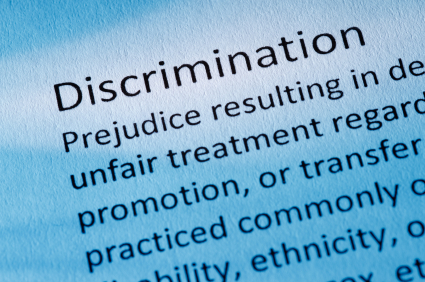Master the Telephone Interview! Here’s How!
Many companies are attempting to avoid costs and wasted time by doing employment screening with a telephone interview. This is your first chance to shine! Simple objective: Get a face-to-face interview! Here is how to be successful!
____________
You have been selected to have a preliminary or phone interview as part of the screening process for a job that you want badly. This job has all of the trappings including the business automobile, protected territory, great compensation plan, and more.
The phone interview, if you are successful, will lead to an in-person interview in another state with the hiring manager. The phone interview is with the human resources recruiter and you want a home run!
This scenario is not uncommon. In the sales profession, with candidates often located good distances from the main offices, companies wisely make decisions to screening interviews on the phone before considering bringing a candidate in for an in-person interview.
There are many reasons to use the phone for this purpose; the main reason is that it is cost effective. Travel which is very expensive now days, and companies are wise to try to avoid some of this expense. Additionally, if candidates are closely matched in their qualifications, a decision as to who to interview might be determined by some well-directed questions.
There are some tactics that you can undertake that will prepare you and put you in the best light.
You Are the Expert on You
You have heard me say this before, and you will undoubtedly hear it again, “You are the expert on you!” Don’t fall into the trap of waiting for questions that will show your worth, be prepared to give the interviewer the requisite information that makes you shine.
Gather the following information:
- Your Resume – the exact copy that the interviewee has been given. Know your accomplishments, that is what sets you apart.
- A clear concise salary history (You probably won’t need it, but be prepared).
- A brief ‘elevator pitch’ on yourself describing why you deserve the job. Brief means 45 seconds or less.
- Your reasons for leaving any job that you have had in the past 10 years. Reduce it to writing and be strong at explaining it.
- Your sales statistics (this is a big one). That should include percentages of improvement or growth (or the opposite). Again, it is all about accomplishments
- A clear concise picture of the organization you would like to join. What are the markets, products, accomplishments, etc.
Your objective is to have this valuable information at your fingertips, as when there is a pause on the phone, the interviewer cannot tell what you are doing. You need to be prepared mentally, and prepared from the standpoint of reference material on your background. The most important part is that you should be able to recite it chapter and verse without much prompting.
Any question on your background and talents should be in your realm of information. Additionally, you should be able to put into words your strengths, weaknesses and professional objectives as these are common questions.
Phone Interview Etiquette
Just a couple of rules for the interview itself:
- Establish what you will call the interviewer. This can be done during the introductions. If you don’t know, then stick to “Mr. Johnson” until he tells you differently.
- No background noise at all if possible. You don’t need Barry White begging in the background, even if it does not distract you.
- No interruptions. Set it for a time when you will have no interruptions such as young students returning home from school.
- Don’t interrupt the interviewer. Do not step on someone’s sentences, as that will annoy them.
- Use a landline phone if at all possible. There is nothing more distracting than a dropped call when someone is trying to give you a chance at a career.
- Block call-waiting notifications. If your service allows it, block call-waiting notifications. Those annoying clicks when your friends are calling are extremely distracting to an interviewer, even if they do not bother you. (Dialing *70 prior to the call usually blocks the call waiting feature)
- Conference correctly. If you use the conference feature on your phone, be careful with rustling paper and background noise. No gum or candy, and no pets in the vicinity.
- No Eating. This may sound like a no-brainer, yet people do it. Have water nearby, and recognize swilling water does produce noise.
It is important to realize that if they are annoyed by your background noise, or the difficulty they have in understanding you, they will ‘check out’ and lean toward another candidate. Make this a pleasant experience.
Your Objective is Simple – a Face-to-Face Interview!
Go in knowing what the prize is, but also know that your chance to make the impression is increased if you can get face-to-face. So…your phone interview might be done in racial anonymity, especially if your resume and other correspondence was done in a race neutral format. I am compelled to explain these briefly here:
Racial anonymity – Meaning there has been no disclosure as to race on your part, and none was asked. The interviewer has no positive verification of your race, and presumably makes the decisions on the basis of the quality of the telephone interview.
Race Neutral Format – The resume, and any supporting information gives no indication of race, fraternal or sorority involvement. The reviewer is left to make the decision on the basis of your qualifications and the telephone interview itself.
You are not concealing anything, you are answering their questions and attempting to get the position. The more level the playing field, the less of an effect that preference can have in the initial screening process (Refer to Black Sales Journal 12/30/2010 – Preference, Perceptions, and Prejudice and Your Employer). I know that there may be issues that don’t allow racial anonymity including which college or university you attended, and some voice intonations, yet it is worth the effort if you can sound as race neutral as possible.
Above all, recognize that you will not have a chance without getting past this initial screen. Approach it with vigor and a plan. Be prepared!
“What Kind of Money Do You Want?”
There is an important question that you should be prepared for that many sales professionals get surprised by: “Now that you know the opportunity, what would you need in terms of salary for this position?”
I think the best answer to this is a simple one: ”I am open and flexible with my salary demands. Much depends on the benefit structure and the compensation (commission or remuneration) plan.” You want a face-to-face interview so you can show your worth. This response is legit and fair. Keep all of your options open.
Your comments are welcome.
 October 28, 2013
|
Posted by Admin9!
October 28, 2013
|
Posted by Admin9!

 Categories:
Categories:  Tags:
Tags: 

Your Comments